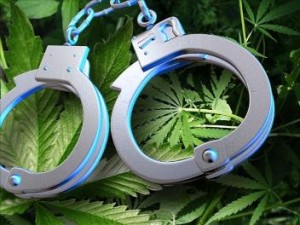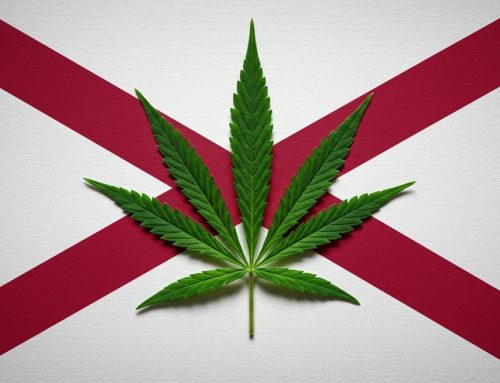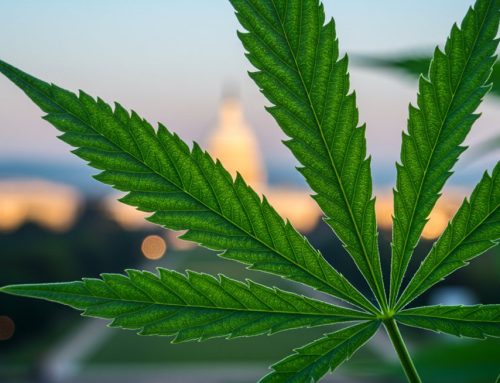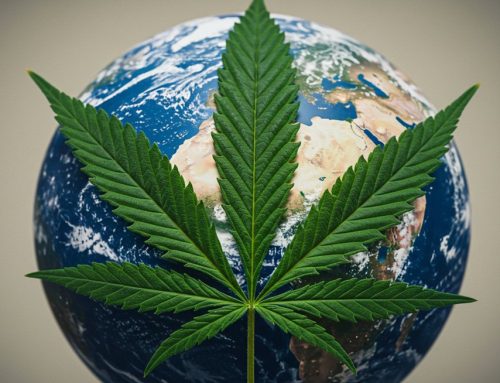Marijuana is legal in Colorado. Crime rates are rising in the state’s biggest city. Did one cause the other?
Probably not, experts say. A report in The Denver Post concludes that legalization is not to blame for a minor uptick in crime rates in the city. Even police agree.
“Crime is up,” said Sonny Jackson, spokesman for the Denver Police Department. “But I don’t know if you can relate it to marijuana.”
It’s hard to know for sure what effect legalization has had on crime in Colorado. But observers agree the impact has been small. And the data that shows a spike may be misleading.
Impact of legalization on crime has been small
 The Post reported that the number of crimes reported by the city has risen by 44 percent since 2012, when voters legalized marijuana. But police have said in the past that the numbers are inflated, pointing to the FBI Uniform Crime Report as a more accurate assessment.
The Post reported that the number of crimes reported by the city has risen by 44 percent since 2012, when voters legalized marijuana. But police have said in the past that the numbers are inflated, pointing to the FBI Uniform Crime Report as a more accurate assessment.
That report shows crime rates climbed by just 3.5 percent over the last three years. And population growth could account for some of the increase, the Post reported.
The city’s statistics played into a recent vote by New Mexico lawmakers, showing the propensity of politicians to oppose reform using fuzzy numbers. New Mexico State Sen. William Sharer, a Republican, pointed to those figures as proof legalization would lead to more crime.
The bill in New Mexico would ask residents whether they want to vote on legalizing cannabis for recreational use in November. It was defeated 24-17.
Crime reports could also affect a lawsuit pending before the U.S. Supreme Court. The justices were scheduled to discuss the case in February and decide whether to take it.
Crime reports could affect lawsuit
 The suit, filed by officials in Nebraska and Oklahoma, seeks to scuttle legalization in Colorado by barring commercial growers and retail pot shops. The two states claim large amounts of marijuana are flowing across their borders.
The suit, filed by officials in Nebraska and Oklahoma, seeks to scuttle legalization in Colorado by barring commercial growers and retail pot shops. The two states claim large amounts of marijuana are flowing across their borders.
The outlook in that case has improved substantially with the death of Supreme Court Justice Antonin Scalia earlier this month. But it could continue to pose a threat to reform.
In Denver, officials tracked serious crimes involving cannabis. In 2012 the city reported 223 crimes, with 172 tied to the legal marijuana industry. In 2014 the number rose to 251, with 183 tied to the industry – an increase in industry-related offenses of less than 7 percent, even as the legal market has exploded in size.
What’s more, cannabis offenses account for less than 1 percent of all crimes reported in Denver each year, according to the FBI.
“There’s absolutely no evidence that our change in marijuana laws has contributed to any specific crime increase,” said Mason Tvert, spokesman for the Marijuana Policy Project.
A study by students at Metropolitan State University in Denver last year reached the same conclusion. Even opponents of reform say Sharer was wrong about the link between crime and cannabis.
“That’s a relatively small number of crimes,” said Tom Gorman, director of the Rocky Mountain High Intensity Drug Trafficking Area, a non-profit that has fought legalization. “When you look at overall crime in Denver, there’s so many reasons that crime rises and falls.”






